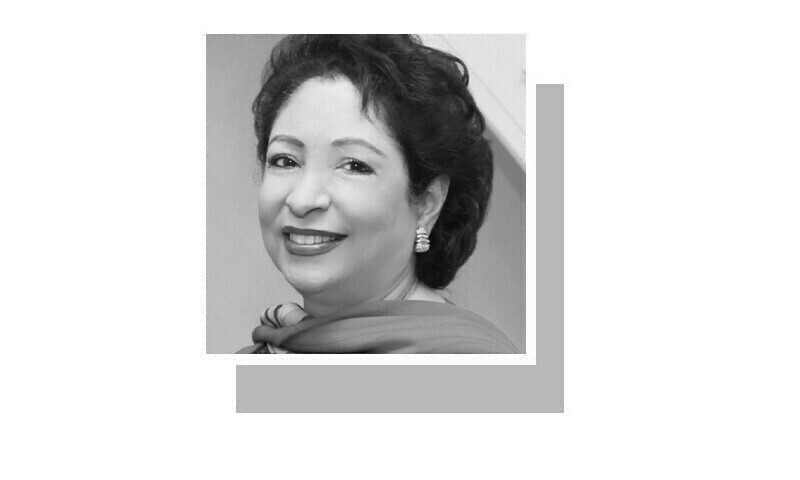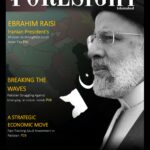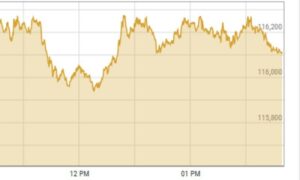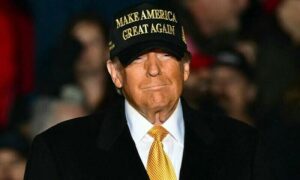DURING the election campaign, President Donald Trump repeatedly said he wanted to “stop wars” and prevent the US from becoming embroiled in foreign adventures. But his provocative statements earlier this month sent a different message.
He threatened to take over the Panama Canal and Greenland, if necessary by military force, and turn Canada into the 51st state of the US by using “economic force”. He also suggested the Gulf of Mexico should be renamed the “Gulf of America”. Meanwhile, his close ally and X owner Elon Musk called for the removal of UK’s Keir Starmer government and declared his support for the far right in Germany.
Does this mean Trump 2.0 is already proving to be destabilising for the world even before he starts his second term? His aggressive assertions certainly signal that, angering countries in Europe and beyond. His statements did not of course go unanswered. French and German leaders shot back to warn the US not to meddle with Europe’s borders while Danish leaders said Greenland was not for sale. The Mexican president responded to Trump’s remarks by saying parts of the US should instead be named Mexican America. Canada’s then prime minister, Justin Trudeau, tweeted “there was a snowball’s chance in hell” of his country becoming part of the US.
width=”100%” frameborder=”0″ scrolling=”no” style=”height:250px;position:relative”
src=”https://www.dawn.com/news/card/1820658″
sandbox=”allow-same-origin allow-scripts allow-popups allow-modals allow-forms”>
But the question is whether all this is characteristic Trumpian bluster or a disturbing indication of what’s to come, which many see as a throwback to 19th-century US imperialism or an age of territorial expansionism. The Financial Times decried Trump’s “expansionist rhetoric” as “dangerously wrong-headed” and pointed to its “unsettling” effect on America’s allies. But only time will tell whether such pronouncements will actually translate into policy actions.
It is hard to say if power will have a moderating effect on Trump’s conduct and policies. Although Europe seems more shaken by his utterances, it is the future course of US-China relations that will be more consequential for global stability. China has been calmly preparing to deal with Trump with its officials in touch with his team ahead of his assumption of office. Trump’s threat to impose much higher tariffs on imports from China, and other trading partners, has raised the spectre of an escalation in the trade and tech war between the world’s two superpowers.
But it may not be easy to carry out that threat. The impact of such action on the American consumer will be hard to ignore as higher tariffs will fuel more inflation. China has also evolved a plan to retaliate in a tariff war by actions that could hurt American companies as well as direct its exports to other and new markets.
Will Trump’s foreign policy be destabilising for the world as is being widely anticipated?
Given Trump’s transactional approach, his tariff threats may well be to generate negotiating leverage to drive a harder trade bargain with China. He has frequently said he seeks a better relationship with Beijing. He spoke by phone with President Xi Jinping before taking over and even took the unprecedented step of inviting him to his inauguration.
width=”100%” frameborder=”0″ scrolling=”no” style=”height:250px;position:relative”
src=”https://www.dawn.com/news/card/1872976″
sandbox=”allow-same-origin allow-scripts allow-popups allow-modals allow-forms”>
The Chinese leader declined but by sending Vice-President Han Zheng to attend the oath-taking he signalled readiness to positively engage with Washington. This doesn’t change the fact that a bipartisan consensus in the US views China as an adversary to be countered. America’s top strategic priority will continue to be to contain China. That doesn’t however rule out Trump seeking a grand bargain with Beijing. For his part, President Xi has said a trade war would have “no winners”. It remains an open question whether the two sides can over time agree on some kind of mutual coexistence, which would obviously be salutary for global stability.
In the Middle East, Trump’s intervention produced the breakthrough that resulted in a ceasefire agreement in Gaza between Hamas and Israel — days before he assumed office. He wanted a quick end to the 15-month war and had said if hostages were not released before his inauguration “all hell will break out”. However, many challenges lie ahead. The Gaza deal has to be enforced in all its phases.
Trump is expected to be unwavering in his support for Israel but he is also capable of putting pressure on Prime Minister Benjamin Netanyahu as he did to seal the ceasefire deal. Members of his team are all staunchly pro-Israel. This could embolden Israel to annex the West Bank — a step Trump might approve. This would plunge the region into more turmoil. It would certainly end any possibility of an independent Palestinian state, which is the key to durable peace in the region.
width=”100%” frameborder=”0″ scrolling=”no” style=”height:250px;position:relative”
src=”https://www.dawn.com/news/card/1869136″
sandbox=”allow-same-origin allow-scripts allow-popups allow-modals allow-forms”>
Trump may be more open to talks with Tehran rather than to Israel’s long-standing desire to wage war against Iran. Under a reformist president, Iran would be in favour of engaging with Washington. There are indications Trump will toughen sanctions but he may also consider this an opportune moment to negotiate with an Iran weakened by its recent setbacks in Syria and Israel’s pummelling of Hamas and Hezbollah. His ally Elon Musk has already met with Iran’s UN envoy in New York. Trump will in any case have to deal with a region which has seen geopolitical shifts that have realigned relations among regional states following the rapprochement between Iran and Saudi Arabia.
Claiming he can end the Ukraine war in 24 hours, Trump has offered no specific plan on how to do this. He wants Ukraine President Volodymyr Zelensky and Russian President Vladimir Putin to enter negotiations to forge a peace deal. But the terms on which this can happen are unclear. Trump has said a meeting with Putin will quickly be arranged.
The Kremlin too is keen on early engagement. European leaders’ worry is that Trump might push for an outcome that advantages Moscow and not consult them. He has in the past been critical of US financial and military support for Ukraine for a conflict he has described as a “bloody mess”.
For Trump unpredictability is both a habit and a tactic. Therefore, little can be said with any certainty. What seems likely though is that with such a mercurial personality in the White House committed to ‘America First’, the world is in for a turbulent phase and further weakening of multilateralism.
The writer is a former ambassador to the US, UK and UN.
Published in Dawn, January 20th, 2025
- Desk Reporthttps://foresightmags.com/author/admin/September 25, 2024









